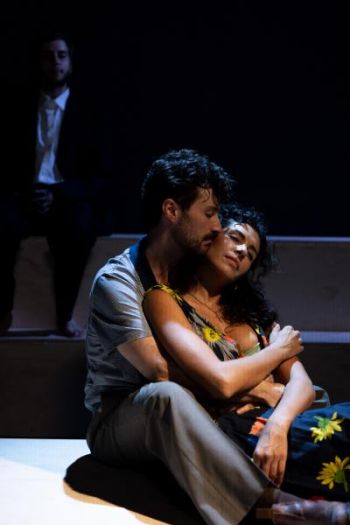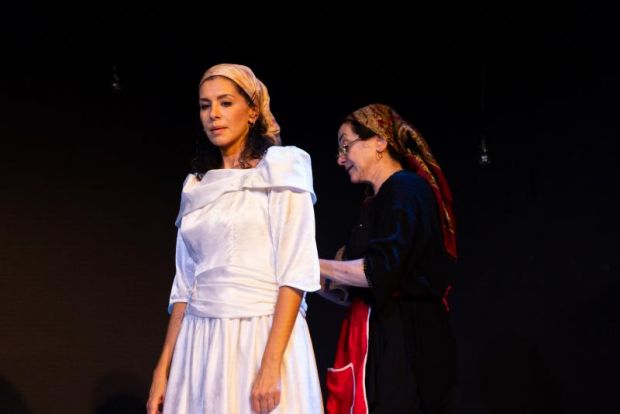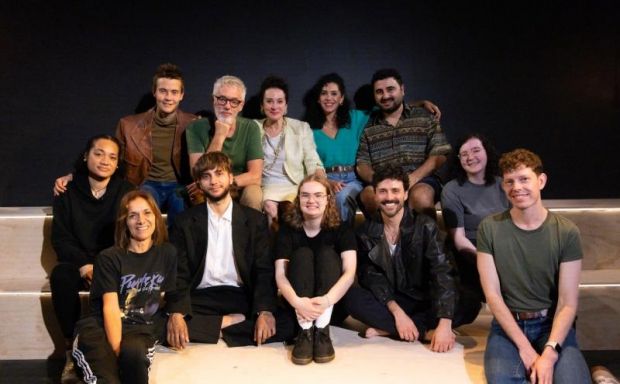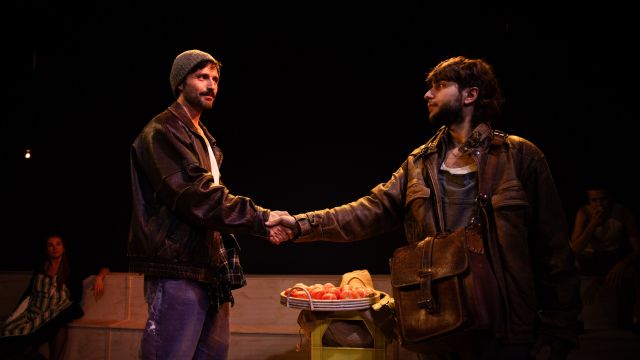Saints Of Damor
At Qtopia in the heart of Sydney’s Darlinghurst queer stories across different cultures, wars and national identities are mushrooming.
James Elazzi’s new play begins in a regional town of Lebanon with fresh love between a tomato farmer, Pierre (Antony Makhlouf), and forthright young welder, Samir (Saro Lepejian), beautifully etched in short scenes from casual touch to passion. The problem is Pierre’s widowed mother Zienab (Deborah Galanos) who insists he settle a huge debt by marrying the neighbour’s daughter, Layla (Nicole Chamoun).

Lebanon’s civil war then brings huge communal fragmentation which Elazzi’s play oddly bypasses, although it kicks along the family narrative as the three emigrate to Australia, leaving Samir. Pierre forever pines for him, as a shopkeeper in dusty Goondiwindi, alienated in his sexless marriage, and finally trying to reinvent Samir using their old love tokens in casual sex around 1980’s Darlinghurst.
His homosexuality remains largely unknown to his wife and mother until a dramatic revelation, with Galanos’ acerbic mother collapsing in a compelling climax of grief. The trigger is Pierre’s seductive bed-buddy, Todd (thoughtfully played by Max Cattana), whose final story through AIDS is an articulate end to this impressive epic.
Just as director Anthony Skuse and his cast all bring great detail to these characters, so too does Elazzi reveal witty snapshots of the émigré experience, whether shunned or part accepted by locals, laughing at Aussie talk and struggling so resourcefully to reach achievement. The women finally sport the wealth of new clothes (fine period costuming by James Smithers) and Chamoun’s frustrated Layla finds new opportunities.
Smither’s set of bleachers and a rolling platform is used inventively by Skuse in Qtopia’s small Loading Dock space.

With all these charms, Elazzi’s long play of short scenes is an authentic, emotional tale of gay love, if lacking some grit and social politics. The over-idealised sentimentality could be trimmed, as could repetitions and incongruous bursts of formal language. But the lovers are extremely well-played and Makhlouf, withheld to the end, remains fully convincing through his long voyage.
Martin Portus
Photographer: Emma Elias

Subscribe to our E-Newsletter, buy our latest print edition or find a Performing Arts book at Book Nook.

